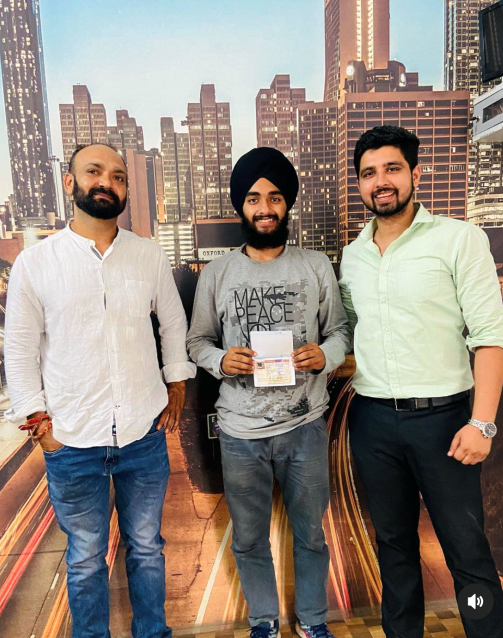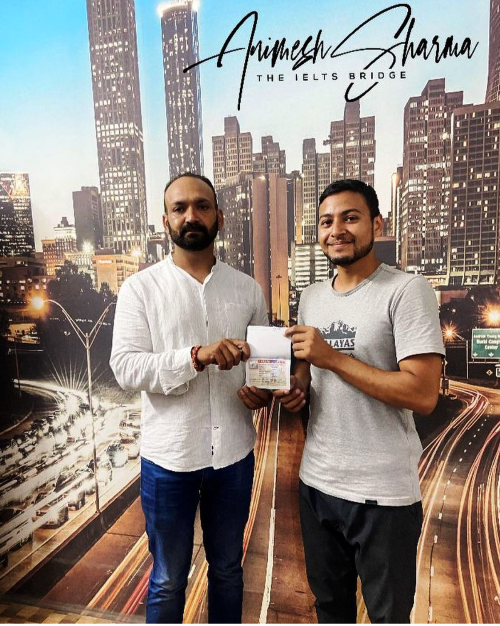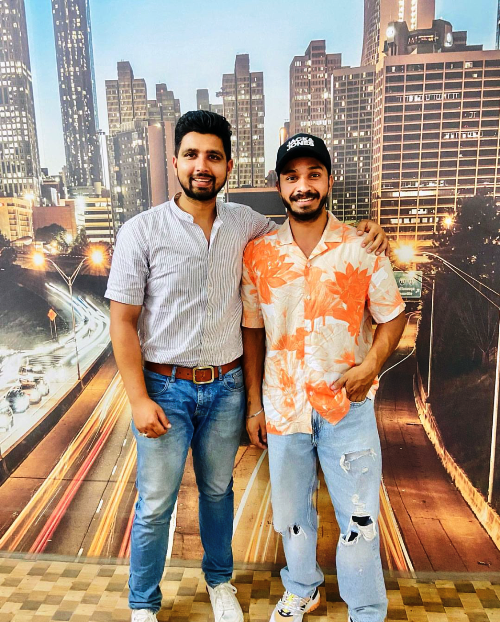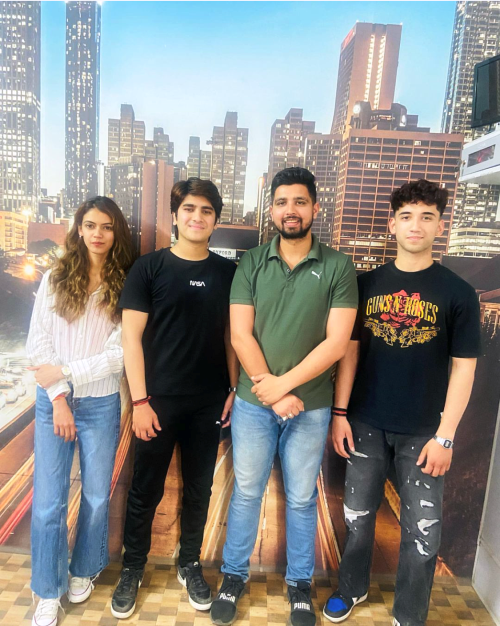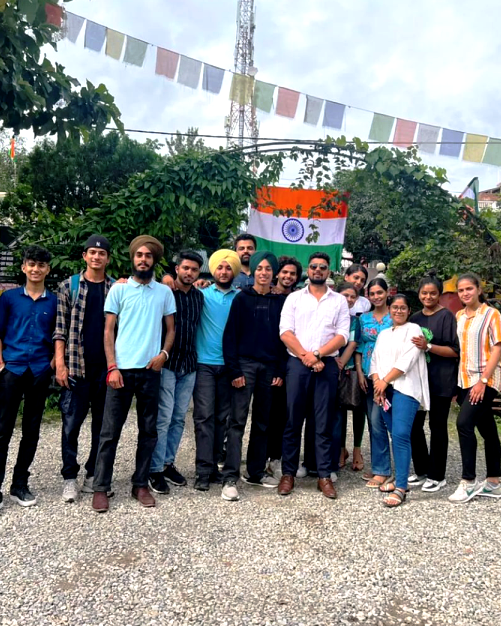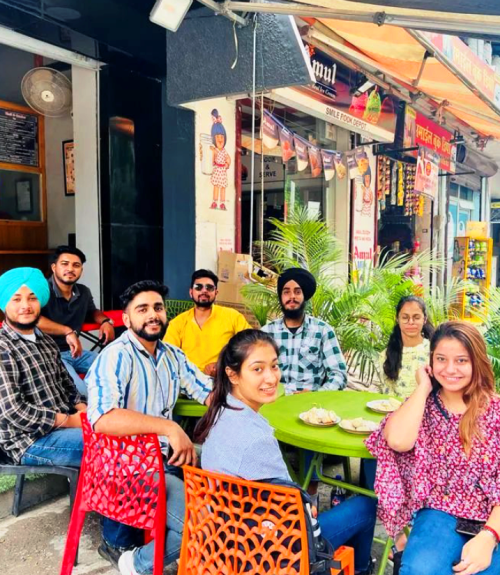Section 1: Holiday Plus
Questions 1-3 (Matching statements with descriptions):
[In this type of question candidates are asked to match the statements (holiday descriptions marked A, B, C, D etc.) with the given statements as questions. Candidates have to write the correct letter for each answer. Here, having a close look at different numbers and important information will do the trick to find the answers.
Question 1: This holiday doesn’t cater for young children.
Keywords for this question: doesn’t cater, young children,
Take a look at holiday description C and read the ‘Holiday location’ column:
- ‘Cedar Lodge: a blend of casual sophistication and rich rainforest ambience for those over 25.’
Here, for those over 25 = doesn’t cater for young children,
So, the answer is: C
Question 2: This holiday provides a tour at no extra cost.
Keywords for this question: tour at no extra cost,
Take a look at holiday description B and read the ‘Comments’ column:
- ‘Pelican Resort: free minibus trip around island’
Here, free = at no extra cost, trip = tour,
So, the answer is: B
Question 3: This holiday involves most travel time from the airport.
Keywords for this question: most travel time, from the airport,
Take a look at advertisement A and read the ‘Transport to/ from airport’ column:
- ‘Mountain Lodge: self-drive auto 1 hour 15 minutes or bus three times/week approx. 2 hours.’
Here, compared to holiday descriptions B and C, this holiday has most travel time (1 hour 15 minutes/ approx. 2 hours).
So, the answer is: A
Questions 4-6 [Short answer to open questions (NO MORE THAN THREE WORDS)
[In this kind of question candidates have to answer some questions, only with some conditions like NO MORE THAN THREE/TWO WORDS and/or A NUMBER or, ONE WORD ONLY. Each question has keywords which will lead to the answer. This question type generally follows a sequence.]
Question 4: When will one of the holiday locations not be open?
Keywords for this question: when, not be open,
Take a look at holiday description B of Pelican Resort and read the ‘Comments’ column:
- ‘refurbishment: resort will close for May.’
Here, close = not be open,
So, the answer is: (for/in) May
Question 5: Which two outdoor activities are provided at no extra cost at Mountain Lodge?
Keywords for this question: two outdoor activities, no extra cost, Mountain Lodge,
Take a look at holiday description A of Mountain Lodge and read the ‘Comments’ column:
- free canoeing
- free talks in the evening
- free open-air tennis courts
Here, free canoeing and free open-air tennis courts are the two outdoor activities.
Note: We know canoeing means boat-ride and this must be done outdoors. Moreover, open-air tennis means this is another outdoor activity.
Here, open-air = outdoor,
So, the answer is: (in any order; both required for one mark)
canoeing,
tennis,
Question 6: What is the fastest way to travel to Mountain Lodge?
Keywords for this question: fastest way, travel, Mountain Lodge,
Take a look at holiday description A of Mountain Lodge and read the ‘Transport to/ from airport’ column:
- self-drive auto 1 hour 15 minutes or bus three times/week approx. 2 hours.’
This means self-drive by automobiles takes 45 minutes less than the bus drives.
So, the answer is: (by) (self-drive) auto(mobile)
Question 7-14:
SYDNEY TRAVEL COLLEGE
Questions 7-14 (Classifying statements)
[This type of question asks candidates to classify information from the given reading text. Candidates are given some statements from the text, and a list of options, which are listed as A, B, C etc. They must match the correct statements with the correct options.
N.B.: This question doesn’t follow any sequence. So, they should be answered after all other questions in the passage.]
Question 7: A student travelling overseas suddenly needs hospital treatment.
Keywords for this question: travelling overseas, suddenly needs, hospital treatment,
In the section entitled ‘1. Medical’, take a look at the very first lines of paragraph no. 1, “Australia has reciprocal medical arrangements with the governments of the eight nations you will be visiting. This arrangement will cover all emergency hospital treatment.”
Here, emergency hospital treatment = suddenly needs hospital treatment,
So, the answer is: A (covered by government arrangements)
Question 8: A student consults a doctor regarding a minor problem while abroad.
Keywords for this question: consults, a doctor, minor problem, while abroad,
In the section entitled ‘1. Medical’, take a look at lines 3-4, “ . .. . However, students will have to take out insurance such as Multiplan to cover the costs of all visits to doctors, and other non-emergency medical situations.”
Here, non-emergency medical situations = minor problem,
So, the answer is: B (covered by the Multiplan policy)
Question 9: A parent goes overseas to bring an injured or sick student to Australia.
Keywords for this question: parent goes overseas, bring, injured, sick student, to Australia,
In the section entitled ‘1. Medical’, take a look at first three lines of paragraph no. 2, “If you have a serious accident or illness, Multiplan insurance will cover the cost of your flight back to Australia, if required. Depending on the circumstances, this may also pay for either medical personnel or a family member to accompany you home.”
Here, ‘depending on the circumstances’ and ‘may’ = in some situations, family members = parent,
So, the answer is: D (covered in some situations)
Question 10: A student is treated overseas for an illness he/she had before leaving Australia.
Keywords for this question: treated overseas, illness, had before, leaving Australia,
In the section entitled ‘1. Medical’, take a close look at first three lines of paragraph no. 3, “If you do require medical treatment overseas, and you want to make a claim on your insurance, the claim will not be accepted unless you produce both your student card and your travel insurance card.”
This means if a student requires any medical treatment overseas and claims the service under medical insurance, it will be given if he/she can provide his/her student card and travel insurance card. So, this is not applicable in all situations, rather this is applicable in some situations.
So, the answer is: D (covered in some situations)
Question 11: A student who requires medical treatment has lost his/her travel insurance card.
Keywords for this question: requires, medical treatment, lost, travel insurance card,
In the section entitled ‘2. Belongings’, read carefully from here, “This covers any loss or theft of your everyday belongings. For example, this insurance covers:
• the present value of items that are stolen, provided that you have purchase receipts for every item; if no receipts, no payment can be made
• replacement value of your briefcase or backpack and study books
• portable computers and CD players, if you specifically list them as items in the policy.”
We cannot find ‘travel insurance card’ in this coverage.
So, the answer is: C (not covered by the Multiplan policy)
Question 12: A student’s study books are lost.
Keywords for this question: student’s study, books, lost,
Again, in the section entitled ‘2. Belongings’, read carefully here, “This covers any loss or theft of your everyday belongings. For example, this insurance covers:
• the present value of items that are stolen, provided that you have purchase receipts for every item; if no receipts, no payment can be made
• replacement value of your briefcase or backpack and study books
• portable computers and CD players, if you specifically list them as items in the policy.”
So the answer is: B (covered by the Multiplan policy)
Question 13: A student’s laptop is stolen.
Keywords for this question: student’s laptop, stolen,
One more time, in the section entitled ‘2. Belongings’, read carefully here, “This covers any loss or theft of your everyday belongings. For example, this insurance covers:
• the present value of items that are stolen, provided that you have purchase receipts for every item; if no receipts, no payment can be made
• replacement value of your briefcase or backpack and study books
• portable computers and CD players, if you specifically list them as items in the policy.”
So, portable computers or laptops can also be claimed, but this has to be listed specifically as items in the policy.
So the answer is: D (covered in some situations)
Question 14: A student changes his/her mind about plans to study and decides not to take the booked flight.
Keywords for this question: student changes, mind, about plans, study, decides, not to take, booked flight,
In the section entitled ‘3. Cancellation’, take a close look at these lines, “This insurance covers any non-refundable deposit and other costs you have paid if you have to cancel due to ‘unforeseen or unforeseeable circumstances outside your control’. It does not provide cover if you change your study or travel plans for other reasons.”
This means if a student changes his/her mind about plans to study, the Multiplan policy does not cover it.
So the answer is: C (not covered by the Multiplan policy)
Section 2: Kenichi Software: security guidelines for staff
Questions 15-20: (Completing sentences with NO MORE THAN TWO WORDS):
In this type of question, candidates are asked to write a maximum two words to complete sentences on the given topic. For this type of question, first, skim the passage to find the keywords in the paragraph concerned with the answer, and then scan to find the exact word.
[TIPS: Here scanning technique will come in handy. Target the keywords of the questions to find the answers. Remember to focus on Proper nouns, random Capital letters, numbers, special characters of text, etc.]
Question 15: If you see anything suspicious, you should report it to a ________ employee.
Keywords for this question:suspicious, report it to, employee,
Take a close look at the last lines of the first section in the passage entitled ‘General’, “It is in everyone’s interest to maintain a high level of security in the workplace. You should immediately challenge any person who appears to be on the premises without proper authorisation, or inform a senior member of staff about any odd or unusual activity.”
Here, inform = report, member of staff = employee,
So, the answer is: senior
Question 16: If the company wants to stop you and __________ you, you have to agree to it.
Keywords for this question:company wants, stop you, have to agree,
The answer is in the second section of the passage entitled ‘Company Property’, where lines 1-6 says, “You are advised that it is within the company’s legal rights to detain any person on the grounds that they may be involved in the unauthorised removal of company property. The company reserves the right to search staff members leaving or entering the premises”
Here, detain = stop, the company reserves the right = you have to agree (as you are an employee), detain = stop,
So, the answer is: (to) search
Question 17: If you take things belonging to the company without permission, you will face _________ .
Keywords for this question:take things, belonging to, company, without permission, will face,
As our main keyword is without permission, we should look at the second paragraph of section no. 2 entitled ‘Company Property’. Here, this is written in lines 4-7, “Any member found removing company property from the building without proper authority will be subject to disciplinary action.”
Here, without proper authority = without permission,
So, the answer is: disciplinary action
Question 18: Staff, ______________ and visitors must all wear a badge on company premises.
Keywords for this question:Staff, visitors, must, wear, badge, on company premises,
The answer remains in section no. 3 entitled ‘Identity Badges’, where the writer mentions in lines 5-7, “Badges are issued by Human Resources, and contractors and people visiting the company on a one-off basis are also obliged to wear them.”
Here, people visiting the company = visitors,
So, the answer is: contractors
Question 19: You must not pass on confidential information to__________ .
Keywords for this question:must not pass on, confidential information,
The answer to this question can be traced in section no. 4 entitled ‘Confidential Matters’. Here, the writer says in lines 8-11, “It is, therefore, essential that you should at all times be aware of the serious view the company would take of disclosure of such material to outsiders.”
Here, should at all times be aware of the serious view the company would take of disclosure of such material = must not pass on confidential information,
So, the answer is: outsiders
Question 20: If you leave the company, you have to hand in any ___________ you have made on matters concerning the company.
Keywords for this question:if, leave the company, have to hand in, you have made, on matters, concerning, company,
The answer to this question can be traced in section no. 4 entitled ‘Confidential Matters’. Here, the writer says in lines 17-21, “Before you leave the company, you must hand over to your manager all private notes relevant to the company’s business, activities, prices, accounts, costs etc.”
Here, must hand over = have to hand in,
So, the answer is: (private) notes
Question 21-27:
Is Everyone Entitled To Paid Holidays?
Questions 21-27: [Short answer to open questions (NO MORE THAN THREE WORDS)
[In this kind of question candidates have to answer some questions, only with some conditions like NO MORE THAN THREE/TWO WORDS and/or A NUMBER or, ONE WORD ONLY. Each question has keywords that will lead to the answer. This question type generally follows a sequence.]
Question 21: In what year were the regulations extended to cover most of the workers who were originally excluded?
Keywords for this question:year, regulations, extended, cover, most, workers, originally, excluded,
In lines 3-6 of the first paragraph the writer says, “Since the regulations were amended, with effect from 1 August 2003, the majority of these workers have been entitled to paid holidays, and since 1 August 2004, the regulations have also applied to junior doctors..”
Here, amended, with effect from = regulations extended,
So, the answer is: (in) 2003
Question 22: What is the minimum annual paid holiday which workers are entitled to?
Keywords for this question:pay increases, depend, each member of staff makes,
Take a look at the second paragraph where the writer mentions holiday lengths, “Workers who qualify are entitled to no fewer than four weeks of paid holiday a year, and public holidays (normally eight days in England and Wales) count towards this. However, workers and employers can agree longer holidays.”
Here, no fewer than = minimum, a year = annual,
So, the answer is: 4 weeks (a year)
Question 23: During a worker’s first year of employment, what proportion of their annual holiday does a month’s work give?
Keywords for this question:Employees must work, minimum, to be eligible, pension,
As the word ‘proportion’ means a fraction, let’s take a look at paragraph no. 3. Here, in lines 2 and 3, the writer says, “For the first year of work, special accrual rules apply. For each month of employment, workers are entitled to one-twelfth of the annual holiday.”
So, the answer is: one-twelfth (of annual holidays)
Question 24: What can an employer give a worker to stop them taking holiday that they have requested?
Keywords for this question:Staff may take, holiday at, provided by, the company,
Let’s go to paragraph no. 4. Here, the author mentions in lines 3-5, “If your employer does not want you to take that holiday, they can give you counter-notice equal to the holiday -.”
So, the answer is: (equal) counter-notice
Question 25: What is given as a possible reason for an employee having to take a holiday at a certain time?
Keywords for this question:company, pay, half the seat price, plays,
The answer can be found in paragraph no. 5, as the writer states here, “If the employer wants you to take holiday at a given time, e.g. when there is a shutdown at the same time every year,’ they must give you notice of at least twice the length of the holiday.”
So, the answer is: (the) (annual) shutdown/ (a) shutdown
Question 26: When an employee leaves their job, what should be given in place of any holiday they have not taken?
Keywords for this answer: company, gives, financial assistance, both, educational, courses, part of staff development,
In the 6th paragraph, the author of this text says in lines 3-5, “However, when you leave the job, you are entitled to receive payment for any outstanding holiday, provided your contract specifically allows for this.”
Here, entitled to receive = should be given,
So, the answer is: (a) (holiday) payment/outstanding holiday payment
Question 27: Apart from a contract, what type of document may set out an employee’s holiday rights?
Keywords for this answer: Employees, entitled to, find themselves, difficult circumstances,
In the last paragraph, the writer says in lines 1-2, “It may be that your contract gives you better rights, or your holiday rights might be specified in a collective agreement.”
Here, apart from = or, may set out = might be specified,
So, the answer is: (a) collective agreement
Section 3 :Snake Oil
Question 28-33: (List of headings):
[In this question type, IELTS candidates are provided with a list of headings, usually identified with lower-case Roman numerals (i, ii, iii, etc,). A heading will refer to the main idea of the paragraph or section of the text. Candidates must find out the equivalent heading to the correct paragraphs or sections, which are marked with alphabets A, B, C and so forth. Candidates need to write the appropriate Roman numerals in the boxes on their answer sheets. There will always be two or three more headings than there are paragraphs or sections. So, some of the headings will not be used. It is also likely that some paragraphs or sections may not be included in the task. Generally, the first paragraph is an example paragraph that will be done for the candidates for their understanding of the task.
TIPS: Skimming is the best reading technique. You need not understand every word here. Just try to gather the gist of the sentences. That’s all. Read quickly and don’t stop until you finish each sentence.]
Question 28: Section C
Section C, the shortest section of the whole text, gives us a detailed description of how people in the past used Echinacea. Here, the writer says, “Native to North America, the roots of Echinacea, or purple coneflower, had been used by the Plains Indians for all kinds of ailments long before Meyer came along. They applied poultices of it to wounds and stings, used it for teeth and gum disease and made a tea from it to treat everything from colds and measles to arthritis. They even used it for snakebite.”
Have a close look at the use of ‘main/principal verbs in the sentences that are all in past form (V2).
So, the answer is: v (Earlier applications of Echinacea)
Question 29: Section D
The answer is found at the beginning of section D where the writer says, “Settlers quickly picked up on the plant’s usefulness but until Meyer (Dr H.C.F. Meyer) sent samples of his ‘blood purifier’ to John Lloyd, a pharmacist, it remained a folk remedy. Initially dismissing Meyer’s claims as nonsense, Lloyd was eventually converted after a colleague, John King, tested the herb and successfully used it to treat bee stings and nasal congestion.”
This description indicates that the research into the usefulness/effectiveness of Echinacea began with Dr Meyer sending samples of the plant to John Lloyd.
So, the answer is: vii (Early research into the effectiveness of Echinacea)
Question 30: Section E
In section E, we find the information about using Echinacea in a new location which is Europe. We came to know from the previous sections that Echinacea was mainly used in America. Now, in this section E, take a look at these lines,
“It was a different story in Europe, where both French and German herbalists and homeopaths continued to make extensive use of it.” (Section E, lines 2-4)
“It had been introduced there by Gerhard Madaus, who travelled from Germany to America in 1937, returning with seed to establish commercial plots of Echinacea.” (Section E, lines 5-6)
So, the answer is: ix (The use of Echinacea in new locations)
Question 31: Section F
We can find the answer at the beginning of section F where the writer gives a detailed description of how Echinacea is used to cure modern-day wounds and other ailments, “There is no evidence that Echinacea is effective against snakebite, but Dr. Meyer – who genuinely believed in Echinacea – would probably be quite amused if he could come back and see the uses to which modern science has put ‘his’ herb. He might not be surprised that science has confirmed Echinacea’s role as a treatment for wounds, or that it has been found to be helpful in relieving arthritis, both claims Meyer made for the herb.”
So, the answer is: x (Modern evidence of the effectiveness of Echinacea)
Question 32: Section G
Section G talks about how Echinacea is grown. Take a look at these lines, “Echinacea is a dry prairie plant, drought-resistant and pretty tolerant of most soils, although it does best in good soil with plenty of sun. Plants are usually grown from seed but they are sometimes available from nurseries.”
So, the answer is: iii (Growing Echinacea)
Question 33: Section H
In section H there is a detailed description of the use of different parts of Echinacea.
Here, in lines 2-5, the writer says, “.. .. . . All have similar medicinal properties. Most European studies have used liquid concentrates extracted from the tops of plants, whereas extraction in the USA has usually been from the roots. Today most manufacturers blend both, sometimes adding flowers and seeds to improve the quality.”
This means the roots, top of the plants, flowers and seeds, all can be used to produce medicine from the Echinacea plant.
Then, in the next paragraph, the author describes how to use the plant, “. .. . Dig them up in autumn after the tops have died back after the first frost. Wash and dry them carefully and store them in glass containers. You can harvest the tops throughout the summer and even eat small amounts of leaf straight from the plant.”
So, the answer is: iv (How to use the Echinacea plant)
Questions 34-40 TRUE, FALSE, NOT GIVEN
[In this type of question, candidates are asked to find out whether:
The statement in the question agrees with the information in the passage – TRUE
The statement in the question contradicts the information in the passage – FALSE
If there is no information on this – NOT GIVEN
For this type of question, you can divide each statement into three independent pieces and make your way through with the answer.]
Question 34: ‘Snake oil’ sellers believed their product was effective.
Keywords for this answer: snake oil sellers, believed, product, effective,
The answer can be traced in Section A paragraph no. 2, “Selling ‘snake oil’ was almost as risky a business as cattle stealing; you might be run out of town if your particular medicine, as you realised it would, failed to live up to its claims. Consequently, the smarter – ‘snake oil’ sellers left town before their customers had much chance to evaluate the ‘cure’ they had just bought.”
Here, failed to live up to its claims = was not effective,
Therefore, we can find out later in the text that snake oil sellers left town just after selling their product to their customers because they knew that their products were not effective.
So, the answer is: FALSE
Question 35: Most people in the Wild West mistrusted ‘snake oil’.
Keywords for this answer: most people, Wild West, mistrusted, snake oil,
We found the answer to question no. 34 in Section A paragraph no. 2.
As this type of question follows a sequence, we need to look for the keywords in section B. Going through section B and C quickly, we can learn that there is no information regarding most people trusted or mistrusted ‘snake oil’ or not.
So, the answer is: NOT GIVEN
Question 36: Some ‘snake oils’ were mostly water.
Keywords for this answer: some, mostly, water,
The answer is in the first lines of paragraph no. 1 in Section B. Here, the author says, “The remarkable thing about many of the medicines dismissed then as ‘snake oil’ is not so much that they failed to live up to the outrageous claims made for them – those that weren’t harmless coloured water could be positively dangerous.”
So, it can be gathered from these lines, snake oil, though dismissed as an effective medicine, had some types and many of the types had harmless coloured water in them.
So, the answer is: TRUE
Question 37: All ‘snake oils’ contained Echinacea.
Keywords for this answer: All, contained, Echinacea,
To find answer to this question, we should have a look at the end of paragraph no. 1 and at the beginning of paragraph no. 2 of section B. The author says, “What’s remarkable is that so many of the claims made for some of these remedies, or at least their ingredients, most of them, plant-based, have since been found to have at least some basis in fact.
One, Echinacea, eventually turned out to be far more potent than even its original promoter claimed.”
Here, most of them, plant-based and One, Echinacea mean that some of the ‘snake oils’ contained Echinacea, not all of them.
So, the answer is: FALSE
Question 38: Echinacea has been proven to kill microbes.
Keywords for this answer: proven, kill microbes,
The answer lies in Section F paragraph no. 2 lines 1-4, “He might though be surprised to learn how Echinacea is proving to be an effective weapon against all sorts of disease, particularly infections. German researchers had used it successfully to treat a range of infections and found it to be effective against bacteria and protozoa2.”
- protozoa = a type of micro-organism/ microbe.
So, the answer is: TRUE
Question 39: The highest quality Echinacea is grown in America.
Keywords for this answer: highest quality, grown, America,
The passage talks about the use of Echinacea both in America and Europe. However, there is no information regarding highest quality growth comparison here.
So, the answer is: NOT GIVEN
Question 40: More than one part of the Echinacea plant has a medicinal use.
Keywords for this answer: More than one part, plant, has, medicinal use,
Section H paragraph no. 1 gives us answer to this question. Take a look at lines 2-5, “Most European studies have used liquid concentrates extracted from the tops of plants, whereas extraction in the USA has usually been from the roots. Today most manufacturers blend both, sometimes adding flowers and seeds to improve the quality.”
These lines confirm that all the parts of Echinacea, the tops of plants, the roots, flowers, and seeds, have medicinal use.
So, the answer is: TRUE



